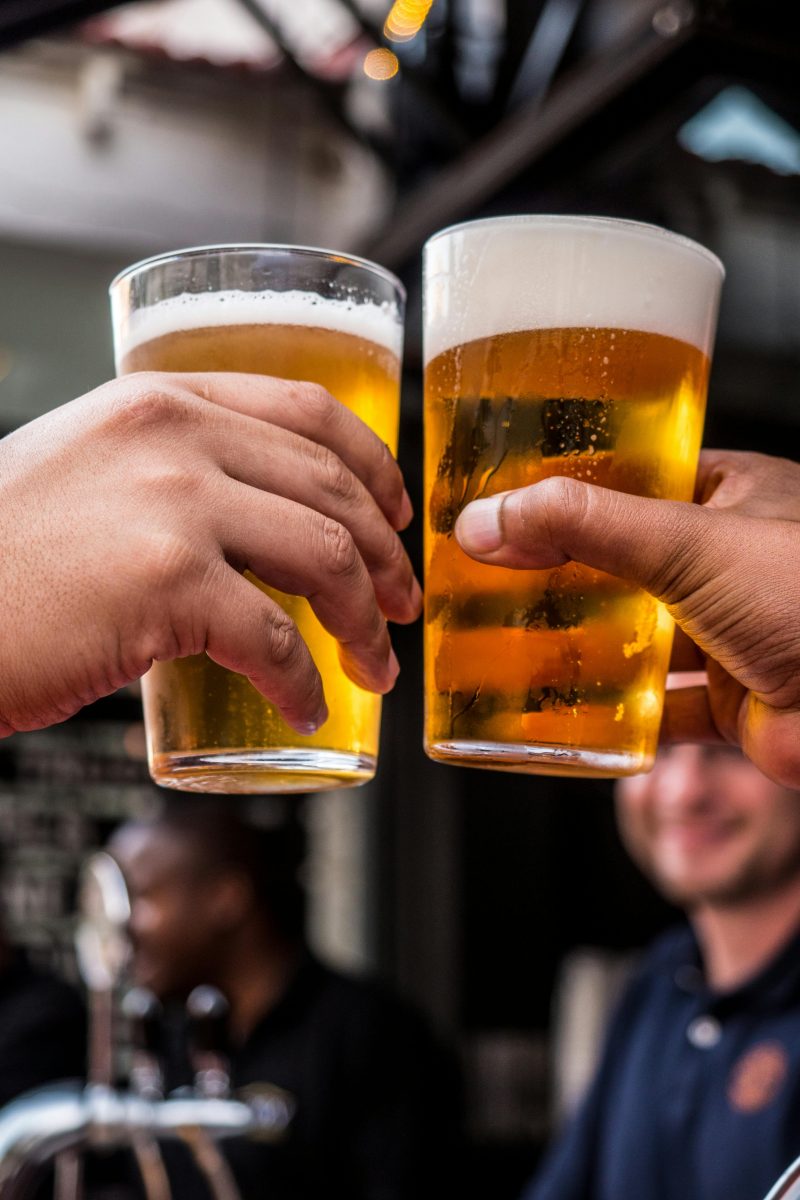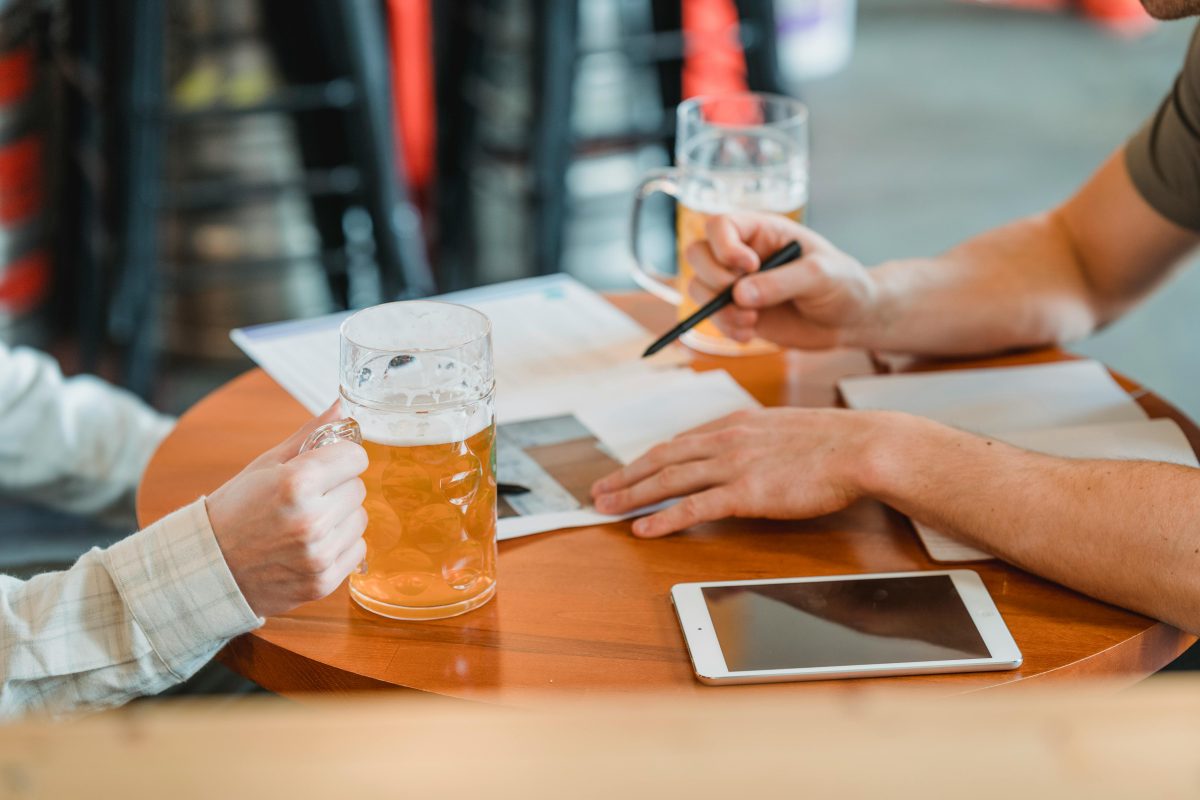Last Updated on: 14th July 2024, 09:30 am
Introduction to Alcohol and Athletic Performance

Alcohol consumption among athletes is a topic that often goes under the radar, yet its impact on performance can’t be overstated. While the camaraderie of post-game celebrations might paint a benign picture, the reality is far more complex. This article aims to shed light on the nuanced ways in which alcohol affects athletic prowess. Our goal? To inform and persuade you about the significant, often overlooked, consequences of alcohol on the body’s ability to perform athletically.
Understanding the relationship between alcohol and athletic performance is crucial. Alcohol, a pervasive part of many social settings, can impair muscle recovery, hydration levels, and overall physical condition. It’s a reality that challenges the peak performance athletes strive for. Through this exploration, we aim to present a compelling case for moderation, highlighting how even occasional indulgence can derail the hard-earned gains of training.
Understanding Alcohol and Its Effects on the Body

The Basics of Alcohol Metabolism
- When alcohol enters the body, it’s primarily metabolized in the liver, where enzymes break it down into acetaldehyde, then acetate.
- This process can strain the liver, especially with excessive consumption.
- The rate of metabolism varies among individuals, influenced by factors such as age, gender, and genetic makeup.
Short-term Effects of Alcohol on the Body
- Dehydration: Alcohol acts as a diuretic, leading to increased fluid loss.
- Reduced Coordination: Impairment in motor skills and balance.
- Slowed Reaction Times: Delayed responses to stimuli.
Long-term Effects of Alcohol on Overall Health
- Alcoholic Liver Disease: Chronic damage leading to liver failure.
- Cardiovascular Problems: Increased risk of heart disease.
- Cognitive Impairments: Long-term memory and learning issues.
In conclusion, while the social aspect of alcohol consumption may seem appealing, its effects on the body, especially for athletes, are far-reaching. Understanding these impacts is the first step towards making informed decisions about alcohol use, ensuring that athletic performance and overall health are not compromised.
Alcohol’s Impact on Athletic Performance

Immediate Effects on Coordination, Reaction Time, and Judgment
- Coordination: Alcohol’s influence starts swiftly, impairing an athlete’s precision.
- Reaction Time: Slowed responses increase the likelihood of errors.
- Judgment: Clouded decision-making can lead to poor performance.
Impact on Muscle Recovery and Growth
- Protein Synthesis: Alcohol interferes with the repair and growth of muscles.
- Recovery Time: Slows down the body’s ability to recover post-exercise.
Effects on Hydration and Energy Levels
- Dehydration: Increased urine production leads to fluid loss.
- Energy Supply: Alters glucose metabolism, depleting energy reserves.
In summary, while the allure of alcohol may be strong, its effects on athletic performance are undeniable. From immediate impacts on coordination and judgment to long-term effects on muscle recovery and hydration, alcohol can significantly hinder an athlete’s ability to perform and progress. Understanding these impacts is crucial for anyone looking to maintain peak physical condition and achieve their athletic goals.
Alcohol and Its Psychological Effects on Athletes

Alcohol as a Coping Mechanism for Stress and Anxiety
- Short-term Relief: Initially may seem effective for unwinding.
- Dependency: Can quickly spiral into a craving for normalcy.
- Worsening Anxiety: Stress and anxiety often intensify over time.
The Psychological Impact of Alcohol on Motivation and Focus
- Motivation: Dampened drive and determination.
- Focus: Clarity and concentration needed for peak performance blur.
The Risk of Developing Dependency and Its Effects on Athletic Performance
- Commitment to Training: Compulsion to drink can overshadow dedication.
- Withdrawal Effects: Makes concentration and effort in practice sessions nearly impossible.
In conclusion, while the social aspect of alcohol may seem harmless, its psychological effects on athletes are profound. Understanding these impacts is crucial for maintaining not only physical health but mental well-being. The path to peak performance is one of discipline and focus, a path where alcohol has no place.
Strategies for Managing Alcohol Consumption

Guidelines for Moderate Alcohol Consumption
Moderation is key when it comes to alcohol. For men, this means up to two drinks per day, and for women, one drink per day. Understanding what constitutes a “drink” is crucial—12 ounces of beer, 5 ounces of wine, or 1.5 ounces of distilled spirits. Sticking to these guidelines can help maintain a balance between enjoying a social drink and keeping your athletic performance on track.
Tips for Athletes on Managing Social Situations Involving Alcohol
Navigating social situations without compromising training or performance is a skill. Start with a plan: decide beforehand whether you’ll drink and how much. Opting for a non-alcoholic beverage or alternating between alcoholic and non-alcoholic drinks can keep you engaged while minimizing intake. Remember, it’s okay to say no. Your commitment to your sport and performance is a valid and respected reason.
Alternatives to Alcohol for Relaxation and Socializing
Exploring alternatives to alcohol for relaxation and socializing can be both rewarding and beneficial for your athletic performance. Herbal teas and sparkling water with a splash of juice offer refreshing alternatives without the negative effects of alcohol. Engaging in activities like team sports, board games, or outdoor adventures can also provide the camaraderie and relaxation often sought in social drinking scenarios.
In conclusion, managing alcohol consumption is about making informed choices that align with your athletic goals and overall health. By understanding the effects of alcohol, setting personal guidelines, and exploring alternatives, you can enjoy social situations without compromising your performance or well-being.
Role of Coaches and Sports Organizations in Combating Alcohol Misuse

Educational Programs on Alcohol’s Effects
- Knowledge is Power: Coaches and sports organizations must educate athletes on alcohol’s detrimental effects on performance and health. Tailored programs can demystify myths, providing clear, science-backed information on how alcohol impairs recovery, affects hydration, and reduces muscle growth.
Supportive Environments for Athletes
- Creating a Culture of Support: When athletes struggle with alcohol, they need an environment that encourages them to seek help without fear of judgment. Coaches can foster this by promoting open communication and providing access to counseling and rehabilitation services.
Policies and Penalties for Alcohol Use
- Clear Policies Set Expectations: Implementing rules regarding alcohol use, along with consistent penalties, underscores its seriousness. However, the focus should be on education and support, not just punishment. By understanding the risks and knowing the consequences, athletes can make better choices for their careers and their health.
In summary, the role of coaches and sports organizations is multifaceted. They must educate, support, and regulate to effectively address alcohol use among athletes. By doing so, they safeguard the athletes’ well-being and ensure the integrity of sports performance.
In Closing
Alcohol undermines athletic excellence. It’s a barrier to peak performance, demanding informed choices. The journey from awareness to action is pivotal, balancing the allure of social drinking against the rigorous demands of athletic discipline. This article underscores the importance of moderation, the role of support systems, and the power of making informed decisions for athletes. Let’s champion a culture of informed choices and resilience, fostering environments where athletes thrive, free from the constraints of alcohol.
The Impact of Alcohol on Athletic Performance FAQs
Yes, alcohol can contribute to weight gain in athletes. It is calorie-dense, with 7 calories per gram, and these are often considered “empty” calories since they provide no nutritional value. Additionally, alcohol can stimulate appetite and reduce the body’s ability to burn fat, leading to increased body fat percentages.
Yes, consuming alcohol before a game can impair an athlete’s coordination and reaction time. Alcohol affects the central nervous system, leading to slower cognitive functions and delayed responses. This can decrease performance in sports that require quick reflexes and precise movements.
Yes, alcohol consumption can significantly impact an athlete’s endurance levels. It affects the body’s ability to produce energy and can lead to quicker fatigue during physical activities. Alcohol also impairs the body’s ability to regulate temperature, which can further decrease endurance capabilities.
Yes, the timing of alcohol consumption can influence its effects on athletic performance. Drinking alcohol close to training sessions or competitions can have more immediate and pronounced effects on hydration, energy levels, and cognitive functions. Conversely, alcohol consumed well before an athletic event may have less direct impact but can still affect long-term recovery and performance outcomes.
Yes, alcohol can negatively affect muscle growth. It interferes with the body’s ability to synthesize proteins, which is essential for muscle repair and growth. Additionally, alcohol consumption can lead to dehydration, further hindering the muscle recovery process.
Yes, alcohol affects the cardiovascular system in ways that can negatively impact athletic performance. It can lead to dehydration and electrolyte imbalances, which strain the heart and can cause irregular heart rhythms. Over time, excessive alcohol consumption can also lead to heart damage, affecting an athlete’s endurance and overall performance.
Yes, alcohol acts as a diuretic, leading to increased urine production and, consequently, dehydration. Dehydration can severely impact athletic performance by reducing strength, power, and endurance. It also makes the body more susceptible to heat-related illnesses during physical activities.
Alcohol consumption can negatively affect an athlete’s mental focus and concentration. It alters brain function, leading to decreased attention and cognitive abilities, which are crucial for strategic thinking and effective performance in sports. This can make it challenging for athletes to stay engaged and perform at their best during competitions or training.
Alcohol slows down the recovery process in athletes. It can increase inflammation and delay the healing of muscle tissues, making it harder for the body to recover from injuries or strenuous workouts. This can result in longer recovery times and reduced performance in subsequent activities.
Yes, there is a significant link between alcohol consumption and an increased risk of injury among athletes. Alcohol impairs judgment, coordination, and reaction times, making accidents and injuries more likely during physical activity. Additionally, its effects on balance and motor skills contribute to this increased risk.
Orlando is a all round athlete from Australia, now resident in Germany. His sports of passion of American Football(Offensive line), weight training and indoor rock climbing where he uses his 195cm wing span to his advantage.



